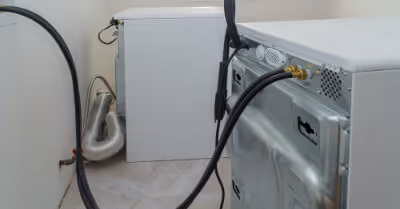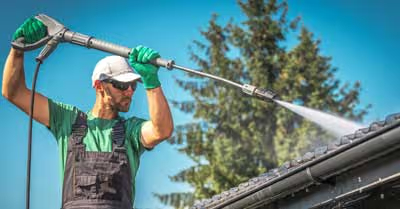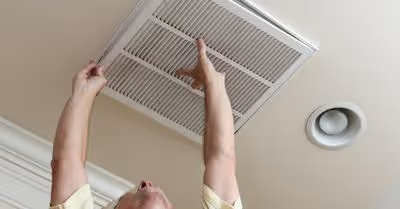Table of Contents
What Does Homeowners Insurance Cover?
Homeowners insurance will offer you financial protection for your home and possibly other assets from disasters, theft, and accidents that you would generally be liable for. There are different types of coverage that you should be aware of. You should also know things that homeowners insurance will not cover.
Dwelling Coverage
Dwelling coverage is the portion of your insurance policy that will cover the cost associated with repairing or rebuilding your home if it is significantly damaged by fire, hurricane, or other disasters that are listed in the policy. Dwelling will cover anything that is built into the home including roofing, walls, deck, floors, cabinetry, plumbing, and foundation.
Other Structures Coverage
This coverage will protect you and pay for repairs and rebuilding of structures that are separate from your own, but listed in the policy. This could be things like a detached garage, fence, shed, or even a guest house.
Personal Property Coverage
Homeowners insurance also covers personal belongings and depending on the policy these belongings may even be covered anywhere in the country or even the world. If someone steals your valuables, or if they are lost in a disaster or accident, they are covered. Furthermore, most policies will cover them if they are in another location such as a hotel. Some policies also cover a guest's personal belongings while they are at your house.
There are separate limits of liability for expensive valuables called sublimits. This means that the insurance company will only pay a certain amount for these types of valuables. Typically, the maximum amount will be somewhere between $1,500 and $2,500. Most insurance companies will offer you the option of increasing these coverage limits by choosing a more expensive, but more comprehensive, coverage tier or by adding on a scheduled personal property coverage option.
Additional Living Expenses
This coverage is also known as loss of use coverage and will cover any living expenses incurred when you cannot reside in your house due to damage by a disaster and you must live somewhere else while it is being rebuilt or repaired. This coverage may include the costs of rent at your temporary dwelling or residence, the cost of gasoline for fleeing the area, and the amount that you would have received if you were renting the property out.
Generally, your loss of use coverage will only cover you for the shortest time that is required in order to repair or rebuild your residence. If you decide to relocate when your home is damaged or destroyed, the payments will continue until you have successfully moved into your new home.
Personal Liability Coverage
Homeowners insurance will also include personal liability coverage to pay for costs for people that you are legally responsible for. The types of events that are covered include accidents due to falling, dog biting, and may cover other additional events. If you are sued because of the event then the liability will also cover any legal fees. Some policies also cover a repair or rebuild of the destruction of another person’s property that you are liable for.
You will be able to choose the amount for personal liability coverage somewhere between $100,000 and $500,000 and then you can also add personal umbrella insurance to your policy to cover assets that exceed the $500,000 limit. The personal umbrella insurance will offer broader liability protection and higher coverage limits than the standard homeowners insurance.
Medical Payments Coverage
Your policy may also include no-fault medical payments coverage that will pay out if a guest sustains an injury at your house. This coverage will apply no matter who is at fault or liable for the injury and you will generally be able to choose between $1,000 and $5,000 for medical payments coverage.
Additional Coverage
You will likely have a choice to purchase additional, supplemental protection to enhance or change your coverage. This could include water backup, equipment breakdown, or more.
What Does Homeowners Insurance Not Cover?
Homeowners insurance covers many types of disasters, loss, and other incidents like wind damage, fire, theft, and more. However, there are some things that will not be automatically covered by your policy.
Most insurance policies do not cover flood damage or water damage caused by the sewage system. Additionally, earthquake damage will almost certainly not be included. Also, general wear and tear or damage caused by pest or neglect will not be covered under your standard policy.
Is Homeowners Insurance Required?
Homeowners insurance is not required by law, but your lender will likely require you to be covered before you can get your money. If you lose your policy, then your lender has the right to foreclose on the home. Your lender may also require you to get additional insurance coverage. In fact, if you live in a high-risk flood area and you carry a mortgage a federally regulated or insured lender must require you to have flood insurance.
Insurance protects the mortgage lender before they loan out large amounts of money. The coverage also offers the homeowner the ability to pay them even after a disaster occurs. The additional coverage that lenders require changes depending on the location of the house, the company, and other variables.
Some lenders may tell you what types of coverage, including minimum amounts, you will have to have before they can provide you with the loan. They may also require a certain structure for the payouts.
Lenders have the ability to require replacement value policies which means that the payout structure for the policy will be paid out on the replacement cost value rather than the actual cash value of the property. This is likely if you have an older home because the actual cash value policy would only cover to replace damage after the depreciation is taken into account. That would substantially lower the amount you could receive.
The lender may also require you to have this type of coverage if you live within a disaster zone. This means that your home or property is susceptible to certain disasters such as mudslides, floods, earthquakes, or hurricanes. The lender may suggest or even require your payout to be based on the extended replacement cost of the labor and the materials. This is usually not a requirement by the lender, but is often strongly recommended.
FEMA designates areas that are likely to flood with a letter system. Every lender will have to require flood insurance if the home is located in “A” or “B” flood areas. In addition, some lenders will require flood insurance for “C” floodplains because they are still high-risk areas.
Lenders may require that you add to your standard coverage with additional types of protections. They may instruct you to add earthquake or hurricane insurance or even water backup coverage. It is always a good idea to check with the insurance company to see if there are any riders available for requirements made by lenders.
Just remember that the home insurance policy should not be thought of as an additional expense because it could potentially save you hundreds of thousands of dollars in the future. The lender requires you to have home insurance because they want to be protected for their investment in the home and the risk they are taking for loaning out a large sum of money. However, you are making a huge decision and should want to be protected as well.
Recent Articles
















